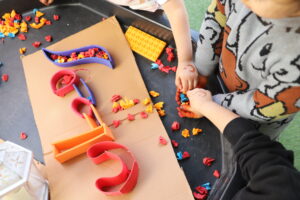Close
 Learning a new language early in life is a wonderful gift for children. When it comes to Arabic, especially in a multicultural society, it’s not just about language — it’s about connection, culture, and confidence. Here’s why including Arabic in early years learning matters, and how it can be introduced in a gentle and playful way:
Learning a new language early in life is a wonderful gift for children. When it comes to Arabic, especially in a multicultural society, it’s not just about language — it’s about connection, culture, and confidence. Here’s why including Arabic in early years learning matters, and how it can be introduced in a gentle and playful way:
Children who learn a second language develop stronger communication skills and greater self-assurance. Arabic helps children feel comfortable expressing themselves in a multicultural environment and supports their growing independence.
Arabic isn’t taught as a separate, optional subject. Instead, it’s naturally woven into everyday activities. This could be through singing songs, playing games, or learning the names of objects around them. This makes the learning process fun, meaningful, and stress-free.
Every child is unique — their age, language skills, and cultural background shape how they learn best. We tailor Arabic learning experiences accordingly, ensuring it’s always accessible and enjoyable.
Instead of starting with letters or rote memorization, children explore Arabic by hearing it in context. They learn through rhymes, stories, interactive play, and simple conversations, which help the language come alive naturally.
Children learn best when they use language to connect with others. By encouraging conversations with Arabic-speaking friends and caregivers, children practice real communication skills that boost both language and social development.
Introducing Arabic early helps children appreciate diverse cultures and traditions. It sparks curiosity and respect for differences, laying a foundation for open-mindedness and empathy.
Language is a powerful tool for belonging. When children can understand and speak Arabic, they feel more connected to their community and surroundings — whether at home, nursery, or beyond.
Including Arabic in the early years isn’t just about language skills — it’s about nurturing confident, curious, and culturally aware little learners who feel at home in their world.
— Nancy
Early Years Educator / Arabic Language Teacher